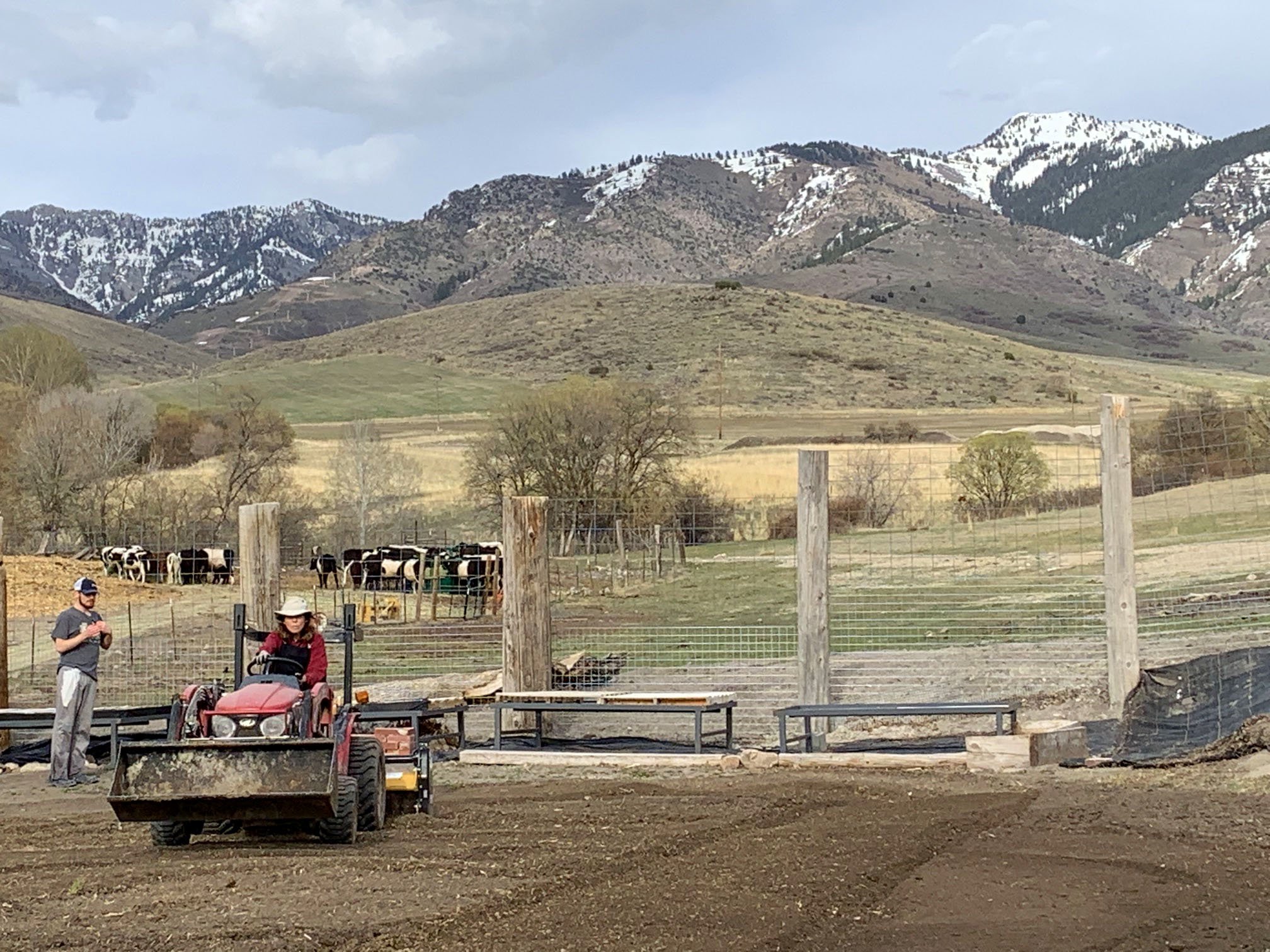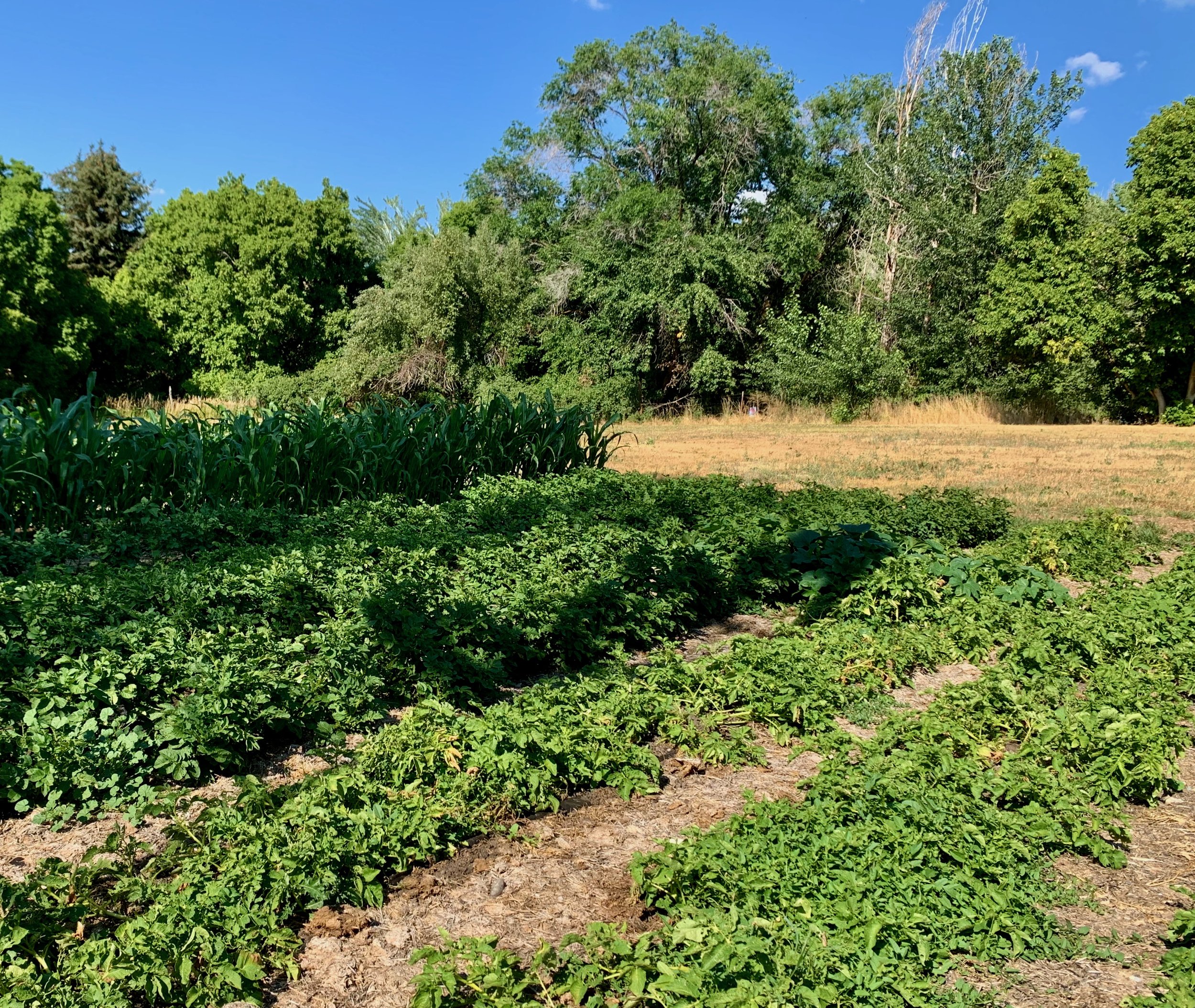Good tilled earth…
The top layer of garden soil is the homeland of the earthworm, that marvelous converter of garbage to topsoil. It seems a pity to tear it to bits with power equipment. This year spring in our area has been cool and dry, delaying the action of worms near the surface. No-till farming is in vogue for good reason, but if you must rototill, then a dry spring is better for that.
Getting plants and seeds out early is advantageous water wise, because a strong root system is your best defense against water shortages later in the season. The problem with our area, though, is that the last frost can be in June, and a strong root system will not guarantee freeze protection.
If you have access to fancy frost protection, hoop houses, cloches, heaters, etc, that is awesome. You can plant outside super-early. However, there is one other old-fashioned way to boost root development even in drought, and that is mulch. You don't have to wait until your plants are in the ground to spread out a weed barrier. As soon as you shut off your tiller engine, get ready to mulch your entire garden edge to edge.
Weeds find plowed ground irresistible. Don't give them a chance. Landscape fabric is your best friend, but if it's too expensive cardboard is also a very good option.. You can staple it down with landscape staples or just weight it so it doesn't blow away. If you are planting rows such as beets or beans, leave narrow strips open just wide enough for seeds. Your garden might be an unsightly patchwork for a few weeks as you poke holes in the mulch and set out plants at your leisure, but short-term ugly precedes long term beautiful.
By mid-summer, the picture perfect green and brown gardens of May will require weed control with every watering. Meanwhile, your garden will be high-standing corn and tomatoes, divided from luxurious trailing vines. You won't have time to weed because you will be harvesting. Who has time to be running their tillers and hoes up and down the rows, fighting the weeds each week? You can be running your lawnmower, covering your cardboard with layer after layer of grass clippings. Best of all, your earthworms will be tilling the cool, damp soil around the roots of your plants, doing no damage and making no sound.


